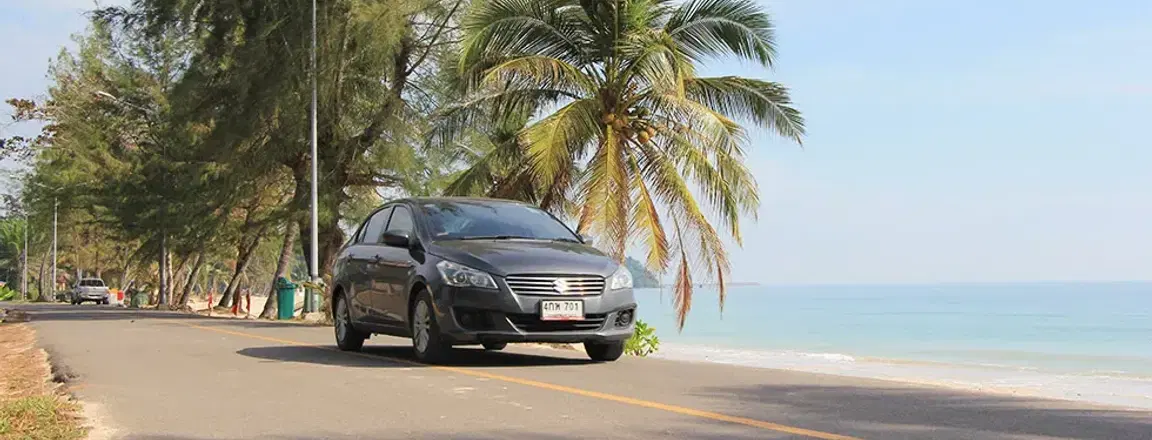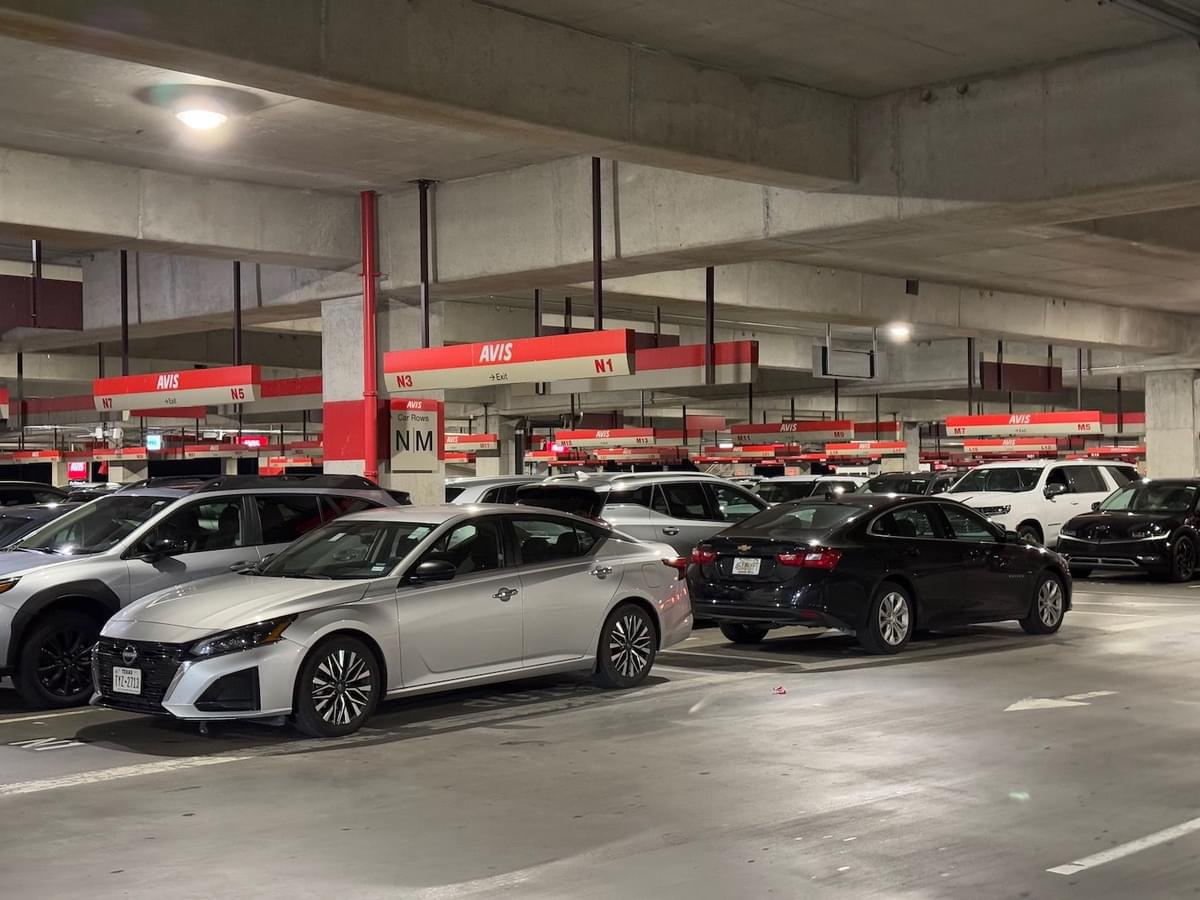
How to Rent a Car in Thailand: Complete Guide for Tourists
Rent, Ride, Revel
Planning to explore Thailand on your own schedule? Learning how to rent a car in Thailand is essential for anyone looking to enjoy the country’s stunning beaches, vibrant cities, and scenic countryside at their own pace. This complete 2025 guide covers everything about Thailand car rental, including how to choose the right vehicle, understand rental costs, and navigate local driving rules. Whether you want to hire a car in Thailand for a short city trip or a long road adventure, these tips will ensure your journey is smooth, safe, and cost-effective.
Documents Required to Rent a Car in Thailand
Essential Documentation
Home Country License: Original, non-expired license required
International Driving Permit: Mandatory for non-ASEAN visitors
Passport: Valid passport with Thailand entry stamp
Credit Card: Same name as driver's license
Pro Tip: ASEAN license holders may skip IDP requirements, but confirmation with rental companies is recommended.
Age and Experience Requirements
In Thailand, the age of the drivers should be at least 21 years, and drivers below 25 years may be surcharged and not allowed to drive certain vehicles. Others can also require an experience of 1-2 years of driving.
Step-by-Step Thailand Car Rental Process
Booking Your Rental Car
Book early for peak season (December-March)
Compare weekly rates vs daily pricing
Choose shoulder months (April-June, September-November) for better deals.
Vehicle Inspection Protocol
Document every scratch, dent, and interior condition
Take timestamped photos of the odometer and fuel gauge
Obtain a signed condition report before departure
Payment and Deposits
Credit cards are preferred over debit cards
Security deposits range $300-$800 USD
Confirm fuel policy (full-to-full recommended)
Thailand Car Rental Cost Breakdown

| Vehicle Type | Daily Rate (USD) | Weekly Rate (USD) | Best For |
| Economy (Toyota Yaris) | $25-40 | $150-250 | City driving, islands |
| Compact/Midsize | $35-55 | $200-350 | Mixed routes, comfort |
| SUV/4WD | $50-80 | $300-500 | Mountain roads, rough terrain |
| 7-Seater Van | $60-100 | $350-600 | Family trips, groups |
Additional Costs
- Fuel: $1.20-1.40 per litre
- Tolls: $2-15 per highway segment
- Ferry fees: $10-30 for island transport
- Parking: $2-10 per day in cities
Car Rental Insurance Thailand Guide
Essential Coverage Types
- CDW (Collision Damage Waiver): Basic coverage with excess
- SCDW (Super CDW): Reduces/eliminates excess fees
- Third-party insurance: Included in most policies
- Personal Accident Insurance: Optional coverage
Money-Saving Tip: Check existing travel insurance and credit card benefits before purchasing additional coverage.
Thai Traffic Rules and Driving Conditions
Key Driving Rules in Thailand
In Thailand, one should always be on the left side of the road, and all passengers should use seatbelts. Phone calls when driving should only be done using hands-free devices, and adhering to speed limits of 50-80 km/h in urban areas and 90-120 km/h on highways.
Road Conditions to Expect
There will be heavy traffic of motorbikes in all regions, and it is necessary to be particularly careful on the mountain roads during the night. Floods may happen during the monsoon season (May-October), and at the roundabouts, there is a tendency for motorists to adhere to the assertive entry concept.
Vehicle Selection for Different Routes
Popular Thailand Driving Routes
Bangkok to Ayutthaya: Compact car sufficient (1.5 hours)
Chiang Mai to Pai: SUV recommended (3+ hours, mountain curves)
Phuket island hopping: Check ferry size restrictions
Southern Thailand beaches: 4WD for beach access
Choosing the Right Vehicle
Economy vehicles are best for exploring the city and short distances. SUVs are comfortable on the highway and mountain routes. Vans are only suitable with big groups of people, but are restricted on certain islands by ferries.
Emergency Procedures and Safety
Accident Protocol
In case of an accident, you should first take care of yourself, and call the tourist police at 1155 and give a call to your rental company immediately. Record the scene, take photographs or videos, share information with the other involved parties and file a police report to ensure against loss.
Avoiding Common Scams
It is important to take detailed photos of the condition of a rented vehicle, retain fuel receipts and photos of the gauges and ensure that all accessories are included during pick-up. Besides, demand signed inspection reports to prevent future conflicts.
Quick Reference Checklist
Before Departure
Confirm IDP validity period
Download offline GPS maps
Save emergency contact numbers
Review rental company policies
At Pickup
Verify all required documents
Complete a thorough vehicle inspection
Test all electronic systems
Confirm fuel policy and return location
While Driving
Keep documents accessible
Maintain a defensive driving approach
Avoid night driving on unfamiliar mountain roads
Use designated parking areas only
Bottom line: How to Rent a Car in Thailand
Hiring a car in Thailand is the ultimate freedom to travel around this multicultural nation at will. It requires proper documentation, comprehensive check-ups of the vehicle, and awareness of the local driving habits. Early booking, planning of the right insurance and safety must be a priority that will make your Thailand road trip an unforgettable adventure.
To have stress-free travelling, you can make bookings with trusted travel agents like Pickyourtrail to manage paperwork and also offer local assistance during your travels.
FAQ'S
Do I need an International Driving Permit to rent a car in Thailand?
A- Yes, the majority of Thailand car rental agencies will demand an IDP, as well as a license issued in your native country. The holders of the ASEAN licenses might be exempt, although they need to be checked with the rental companies.
How much does it cost to rent a car in Thailand per day?
A- Prices of hiring a car in Thailand begin at 25 USD per day for economy cars. Weekly rentals are at a better price and rent is between 150 and 600 USD, depending on the type of vehicle and the time of the year.
Can I drive a Thai rental car across borders to other countries?
A- Intercountry driving is only allowed with special permission and modified insurance. The majority of rental firms do not permit international travel. It is always advisable to check on policies before booking, in case of visiting other countries in the neighbourhood.
What happens if I get into an accident with a rental car in Thailand?
A- Call the tourist police (1155) and then inform your rental company. Take pictures of everything, share information with other individuals and report to the police. Financial responsibility will depend on your insurance coverage.
What are the main traffic rules for tourists driving in Thailand?
A- The major regulations are driving on the left, obligatory seatbelts, hands-free phones only, and respecting the speed limit (50-80 km/h in cities, 90-120 km/h on highways). In the majority of cases, motorbikes have the right-of-way.
Update your location?



